最近看到很多童鞋吐槽鸿蒙自定义弹窗的实现,也有不少童鞋提供了各式各样的低耦,轻巧方向的优化方案,但多数参差不齐,甚至有基于老API(白玩,以后还得废弃掉...)给的方案,为避免如此“乱象”遂提出正确的实现姿势。
姿势一
如果您没有特别的要求,系统AlertDialog(API 6+)完全够用
代码示例:
AlertDialog.show({
title: '温馨提示',
message: '您确认要退出登录吗?',
autoCancel: true, //点击窗口外边是否自动关闭
alignment: DialogAlignment.Center, //弹窗位置
cornerRadius: 8,
primaryButton: {
value: '确认',
action: () => {
toast.show('点击了确认按钮')
}
},
secondaryButton: {
value: '取消',
action: () => {
toast.show('点击了取消按钮')
}
},
cancel: () => {
toast.show('点击弹窗外导致的取消回调')
}
})效果是酱紫的:
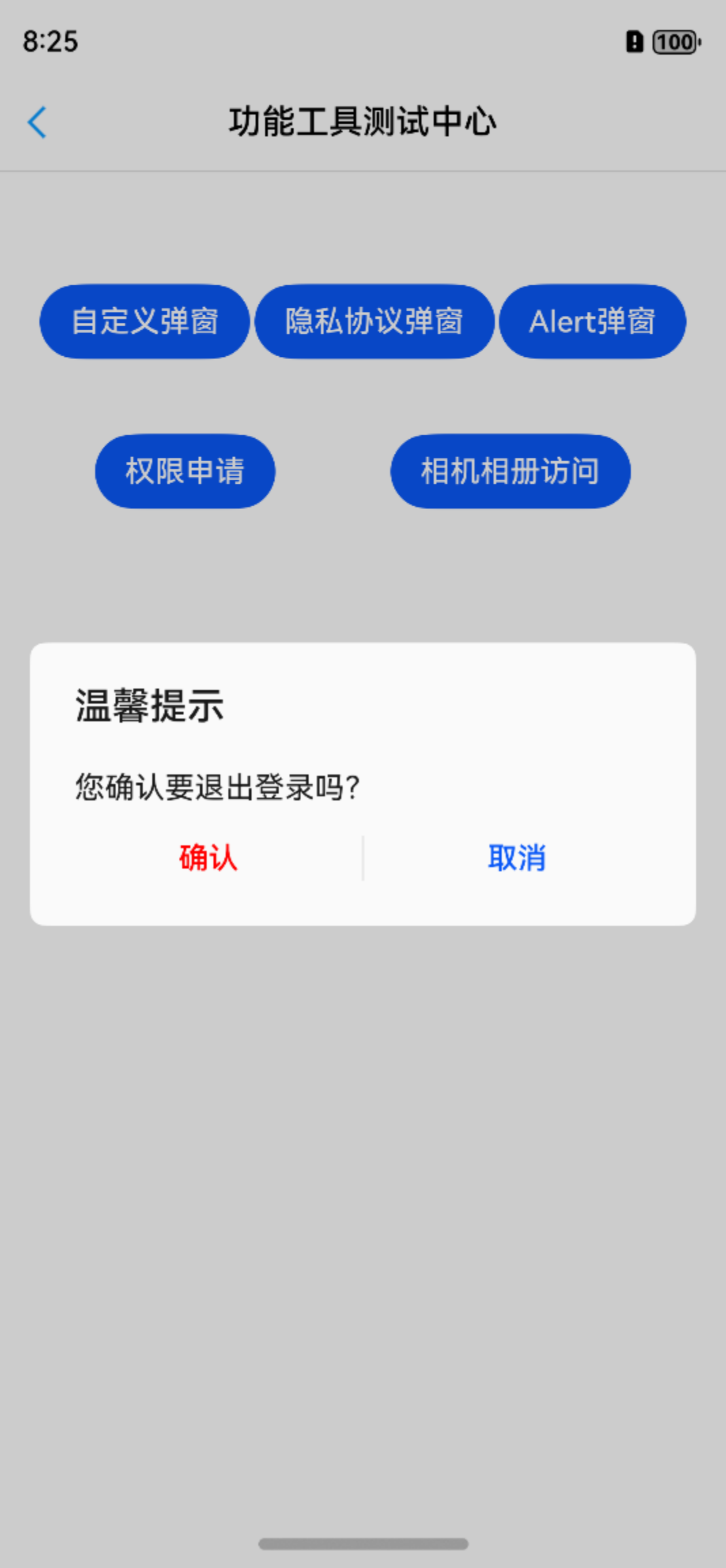
系统AlertDialog还可以定制一些特别的样式:
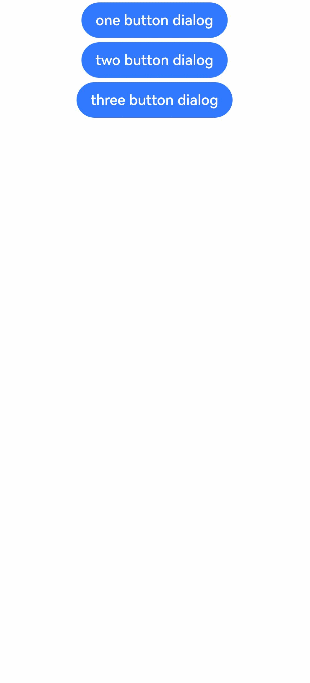
具体就不代码举例了,感兴趣的童鞋可以参考官网demo哈
姿势二
很多时候,系统AlertDialog并不能满足精致化的业务需求,那么API 7给您带来了饱受诟病和吐槽的CustomDialog(API 6+)来方便开发者自定义弹窗
代码示例:
@CustomDialog
@Preview
export struct CommonDialog {
title: string | Resource = "温馨提示"
msg: string | Resource = ""
confirm: string | Resource = "确认"
cancel: string | Resource = "取消"
controller?: CustomDialogController
onCancel: () => void = () => {
}
onConfirm: () => void = () => {
}
build() {
Column({ space: 30 }) {
Text(this.title)
......
Text(this.msg)
......
Flex({ justifyContent: FlexAlign.SpaceAround }) {
Button(this.cancel)
.onClick(() => {
if (this.controller) {
this.controller.close()
this.onCancel()
}
})
......
Button(this.confirm)
.onClick(() => {
if (this.controller) {
this.controller.close()
this.onConfirm()
}
})
......
}
}
}
}然后在组件中配置和唤起:
@Entry
@Component
struct ToolTestPage {
private dialogController: CustomDialogController = new CustomDialogController({
builder: CommonDialog({
onCancel: () => {
toast.show("你点了取消")
},
onConfirm: () => {
toast.showLong("你点了确认")
},
title: "温馨提示",
msg: "您确认要退出登录吗?",
cancel: "取消",
confirm: "确认",
})
})
build() {
......
Button('自定义弹窗')
.onClick(() => {
this.dialogController.open()
})
......
}
}
运行效果:
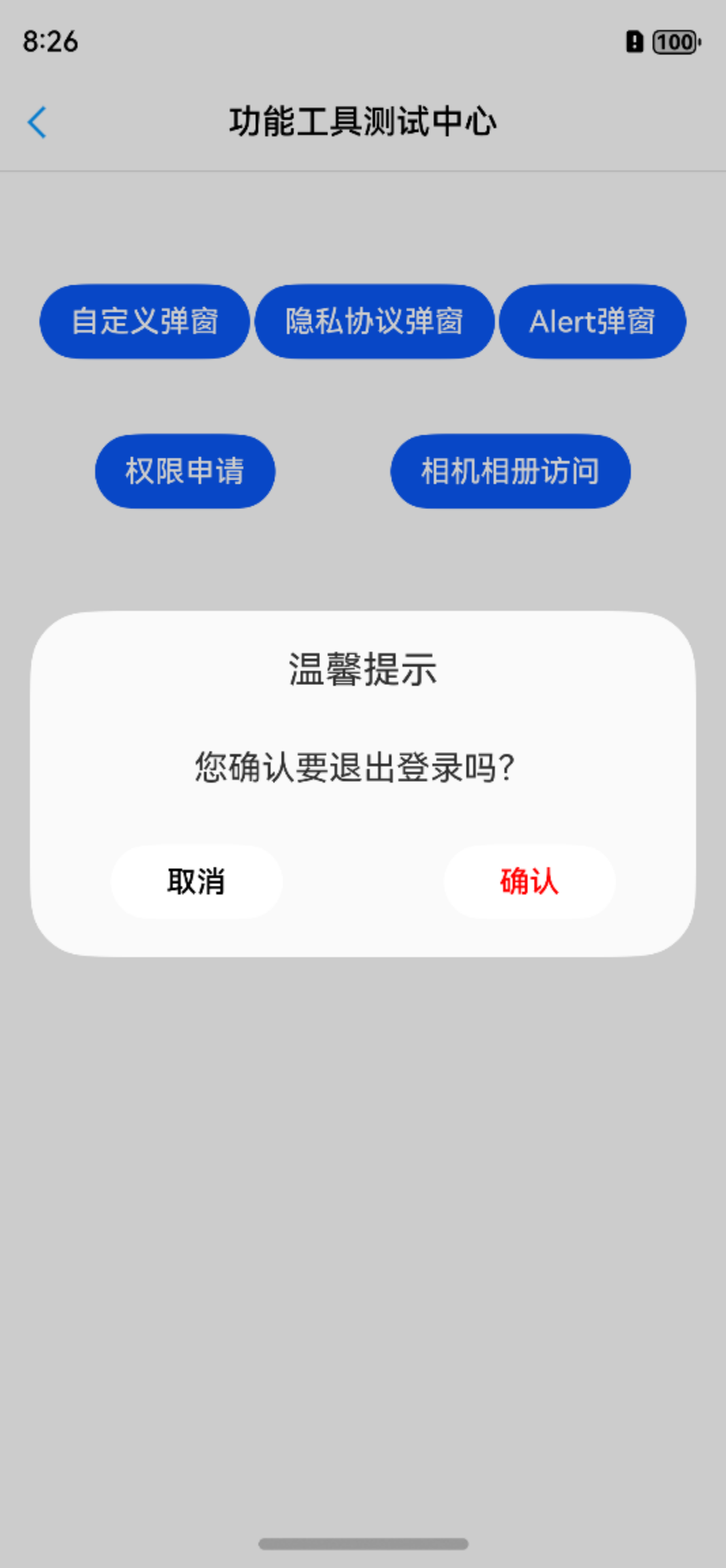
有童鞋就问了,为什么不把属性dialogController收到封装控制类里去呢?哥,我也想啊,鸿蒙不让啊(它会让你报错,跑不起来)
来看下官方文档说明:
CustomDialogController仅在作为@CustomDialog和@Component struct的成员变量,且在@Component struct内部定义时赋值才有效。
再来看官方解释:
CustomDialogController作为UI的一部分必须在Component中使用是非常合理的,因为view是树形结构,dialog不能脱离window独立存在。
统一调用router.push方法并且处理错误中弹窗,开发者可以自己在Component中写回调。
这是哪位“大佬”的“牛逼”设计啊?不敢想象,如果业务弹窗再复杂些,或者组件里搞多个弹窗,代码是有多酸爽~~~
好了,不吐槽了,反正我只用“姿势三”...
姿势三
好在官方貌似意识到了这个问题,在API 12的PromptAction里支持了全局自定义弹框openCustomDialog,不要太舒服~
代码示例:
export class PrivacyDialog {
static show(context: UIContext, dialogParam: DialogParam) {
const contentNode = new ComponentContent(context, wrapBuilder(buildDialogComponent), dialogParam);
const promptAction = context.getPromptAction()
const funcConfirm = dialogParam.onConfirm
dialogParam.onConfirm = () => {
promptAction.closeCustomDialog(contentNode)
if (funcConfirm) {
funcConfirm()
}
}
let funcCancel = dialogParam.onCancel
dialogParam.onCancel = () => {
promptAction.closeCustomDialog(contentNode)
if (funcCancel) {
funcCancel()
}
}
promptAction.openCustomDialog(contentNode, {
alignment: DialogAlignment.Center,
autoCancel: false
});
}
}
@Builder
function buildDialogComponent(param: DialogParam) {
Column() {
Image($r("app.media.user_login_ic_close"))
......
.onClick(() => {
param.onCancel()
})
Text("个人信息保护政策更新")
......
Scroll() {
Text(param.content ? param.content : $r("app.string.wcb_privacy_reminder"))
......
}
Column() {
Divider()
......
Text() {
Span('请阅读')
Span('《个人信息保护政策》')
.fontColor($r('app.color.text_blue1'))
.onClick(() => {
ToastUtils.show("个人信息保护政策")
})
Span('了解详细内容,我们将按此政策收集、使用和保护您的信息')
}
......
Text("确认并继续")
......
.onClick(() => {
param.onConfirm()
})
Text("暂不同意")
......
.onClick(() => {
param.onCancel()
})
}
......
}
......
}
interface DialogParam {
content?: string | Resource
registerUrl?: string
privacyUrl?: string
onConfirm: () => void
onCancel: () => void
}然后在组件中唤起:
@Entry
@Component
struct ToolTestPage {
......
build() {
......
Button('隐私协议弹窗')
.onClick(() => {
PrivacyDialog.show(this.getUIContext(), {
content: $r("app.string.wcb_privacy_reminder"),
onConfirm: (): void => {
ToastUtils.show("用户同意了")
},
onCancel: (): void => {
ToastUtils.show("用户暂不同意")
}
})
})
......
}
}运行效果:
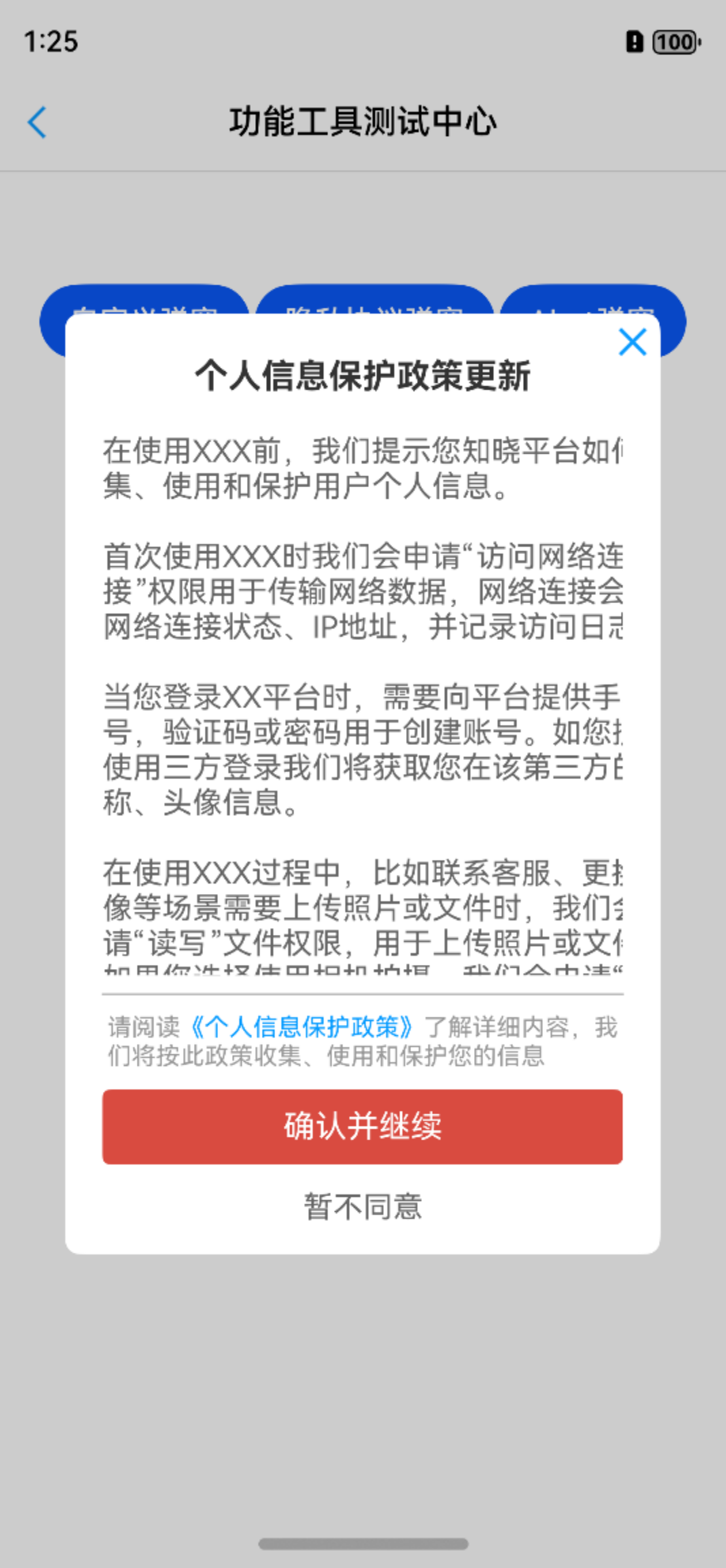
舒服了~
童鞋们,姿势三玩起来吧~~~
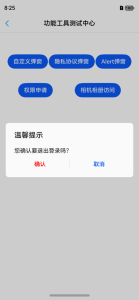

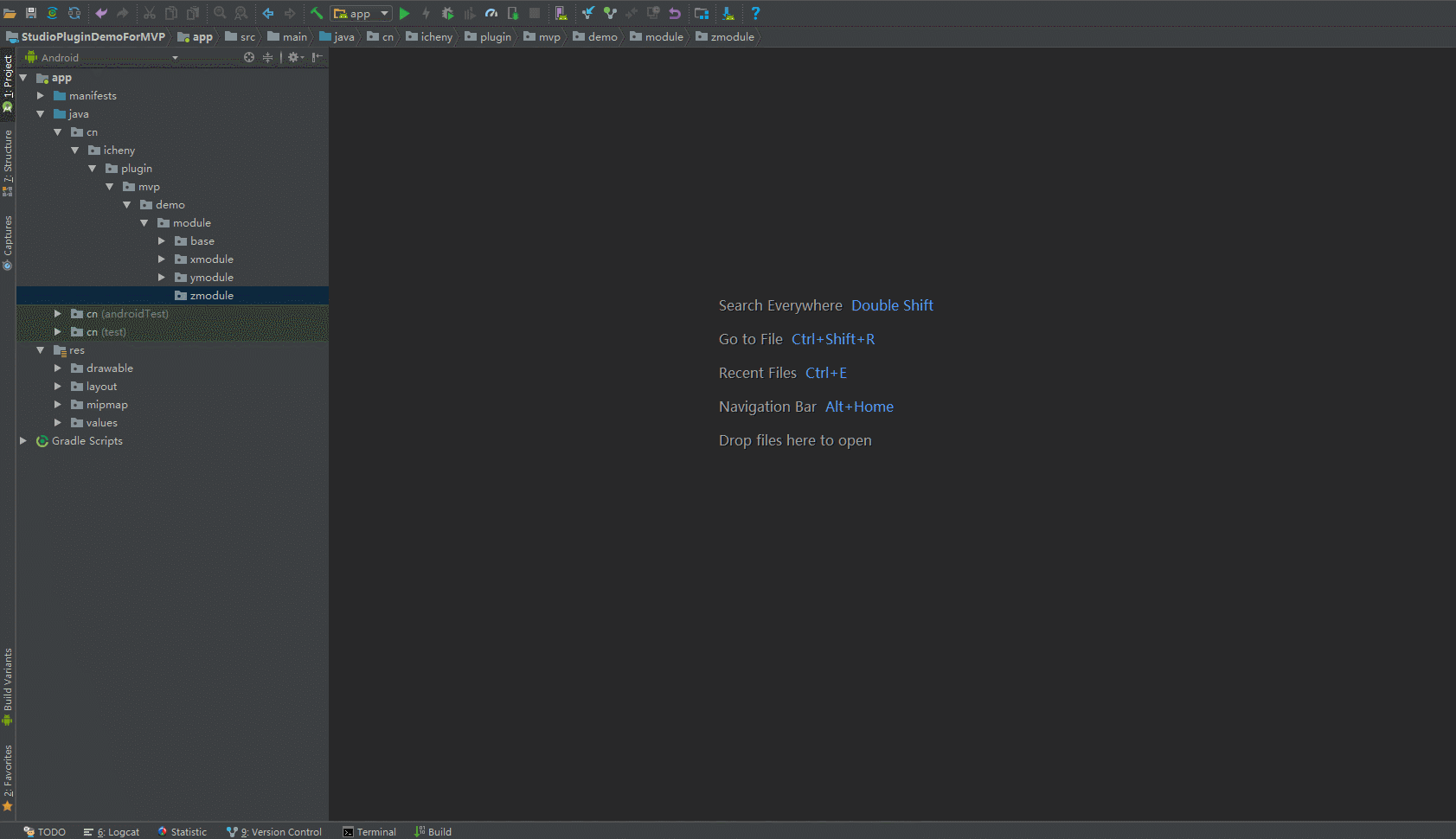
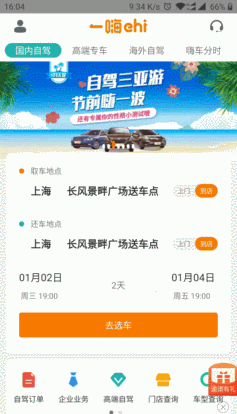

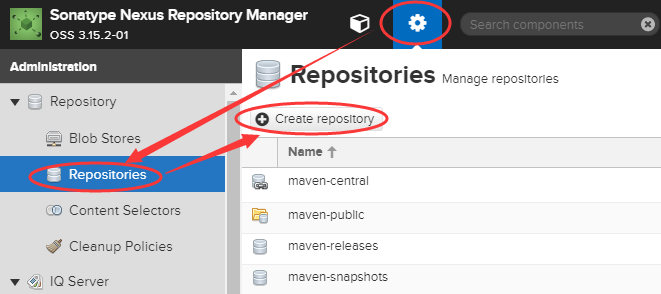

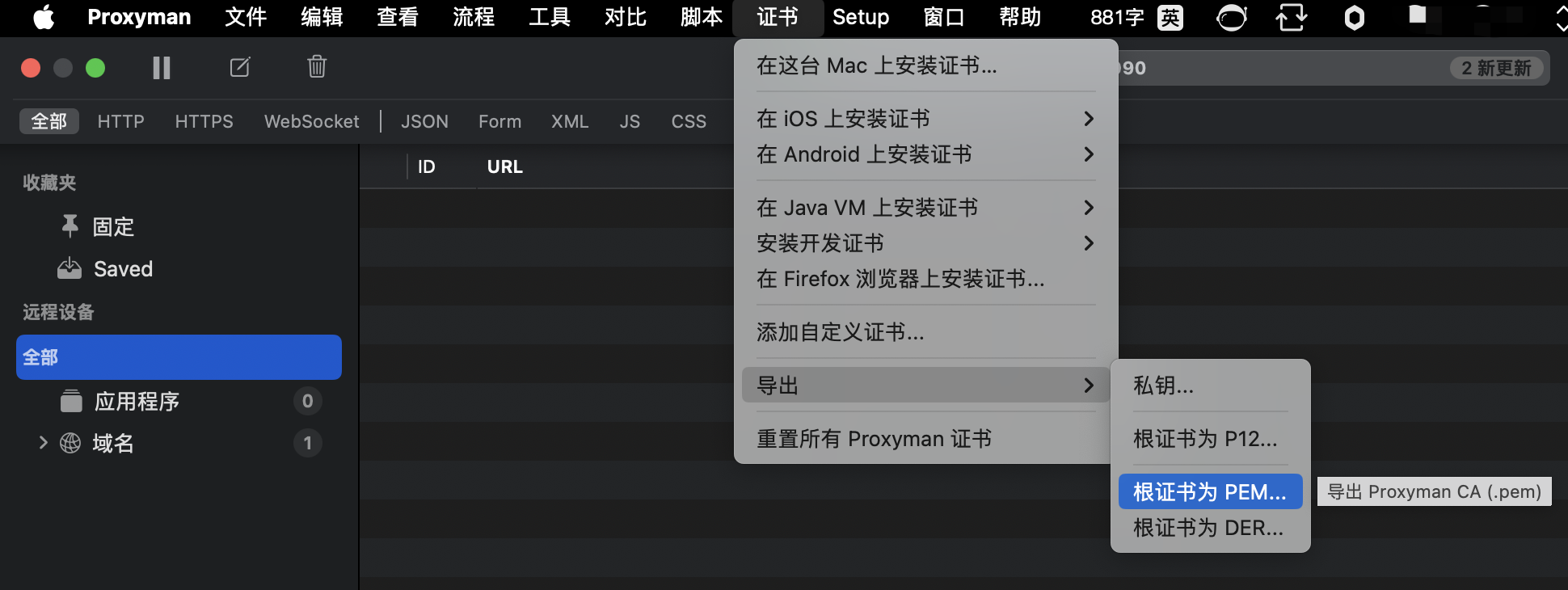
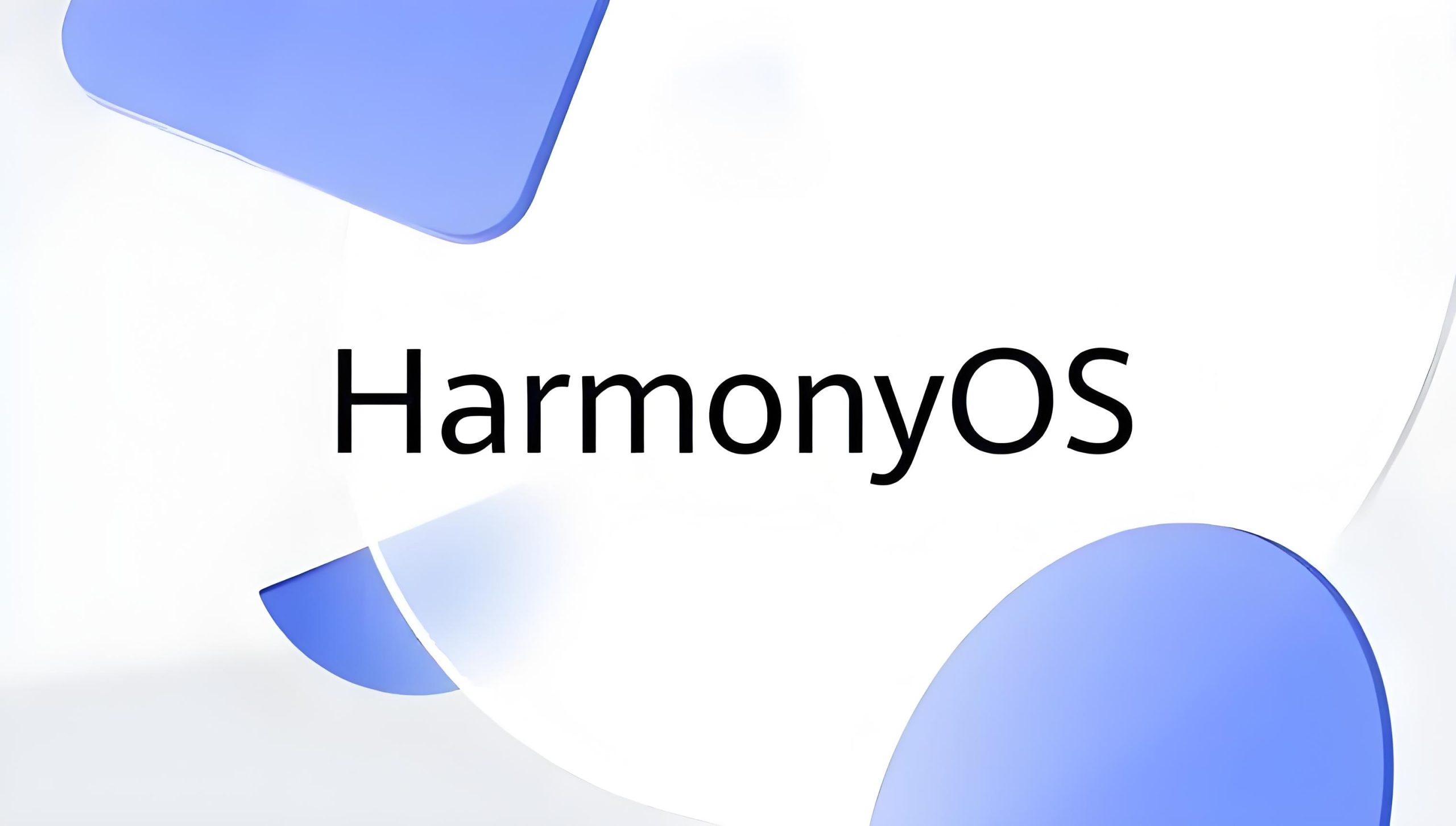
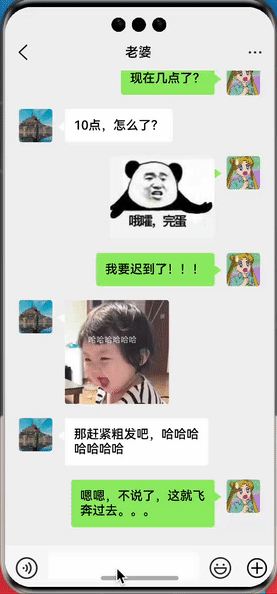
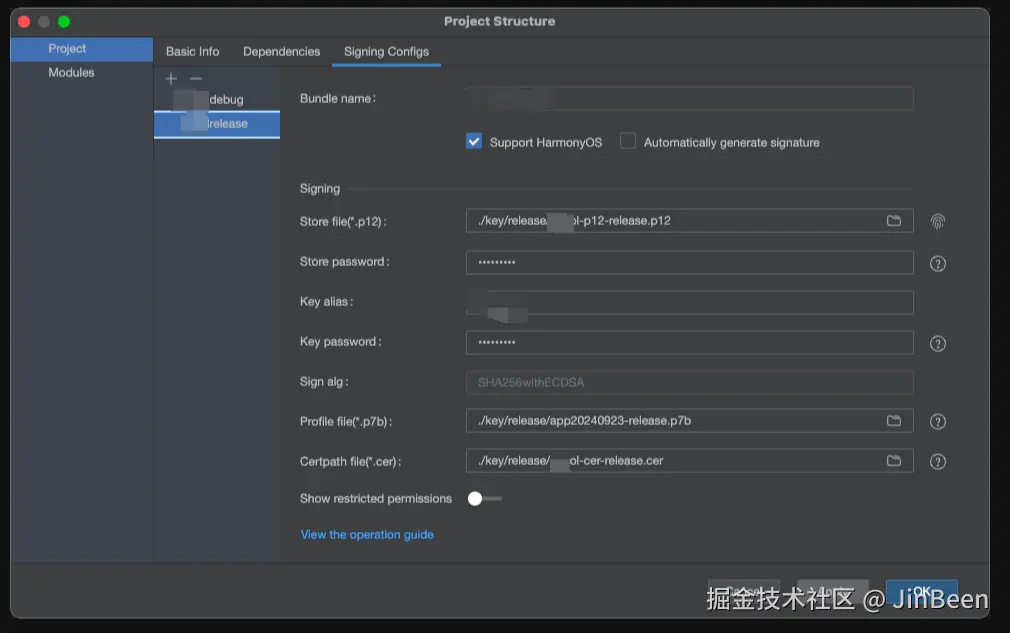



- 最新
- 最热
只看作者